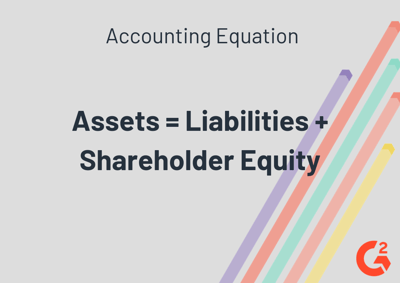Legal Liability Definition in Business
Has anyone ever told you they "owe you one"?
Maybe it's because you bought them a drink or did a favor for them. If it was a favor between friends, the stakes are low. Your friend is probably not keeping track of the favors they owe you, at least not on paper, but you'll remember that they have a liability to return your favor.
This basic concept of liability is the same whether you're discussing personal or business liabilities, but there's a lot more to remember when it comes to financial liabilities besides who owes who a beer.
We'll break down everything you need to know about what liabilities mean in the world of corporate finance below.
What is a liability?
In simple terms, having a liability means that you owe something to somebody else. However, there is a lot more to know about liabilities before you can say you know what the word "liability" means in corporate finance.
Liability definition:
A liability is an obligation of money or service owed to another party.
What is a liability to you is an asset to the party you owe. You can think of liabilities as claims that other parties have to your assets.
On a company balance sheet, liabilities and assets are listed side by side. Liabilities are sorted into two general categories: current and long-term liabilities.
Current vs. long-term liabilities
Current liabilities are expected to be paid back within one year, and long-term liabilities are expected to be paid back in over one year. It's important for companies to keep track of all liabilities, even the short-term ones, so they can accurately determine how to pay them back. On a balance sheet, these two categories are listed separately but added together under "total liabilities" at the bottom.
See some examples of the types of liabilities categorized as current or long-term liabilities below.
Current liabilities
- Wages/payroll
- Accounts payable
- Taxes
- Dividends
Long-term liabilities
- Corporate bonds
- Business loans with terms longer than one year
- Mortgages
Liability vs. expense
Liabilities and expenses are similar in that they are both money owed by a company. The key difference between the two is that expenses are listed on a company's income statement, rather than its balance sheet where liabilities are listed. Expenses are costs associated with a company's operations, not the debts it owes.
Liabilities in the accounting equation
The accounting equation, or balance sheet equation, takes a company's total assets and subtracts its total liabilities from them to find shareholder equity—how much of the company does the company itself actually own? If its liabilities are greater than its assets, shareholder equity will be negative because the company is in debt, meaning the value of all of its assets (everything it owns) is less than the value of everything it owes to outside parties.
If its liabilities are greater than its assets, shareholder equity will be negative because the company is in debt, meaning the value of all of its assets (everything it owns) is less than the value of everything it owes to outside parties.
Is having liabilities always bad?
No! Having liabilities can be great for a company as long as it handles them responsibly. Sometimes borrowing money to fund company growth is the right call, but if your company is routinely taking on liabilities that you can't repay in time, you might be in need of bookkeeping services. Bookkeepers keep track of both liabilities and expenses, and more.


Maddie is a former content specialist at G2. She also has a passion for music and cats. (she/her/hers)
Legal Liability Definition in Business
Source: https://learn.g2.com/liabilities
0 Response to "Legal Liability Definition in Business"
Post a Comment